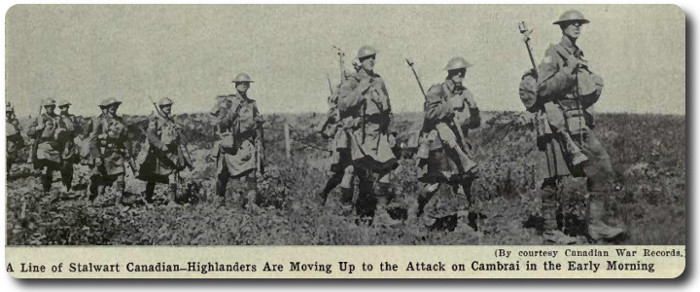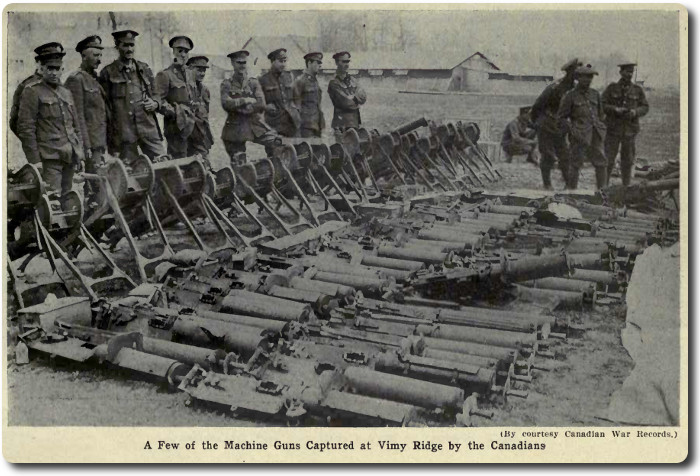Topic: CEF

War's End; Cost and Achievements
CANADA AT WAR; A Record of Heroism and Achievement; 1914-1918
By J. Castell Hopkins, F.S.S., F.R.G.S.
"In the last two years of strenuous fighting [the Canadian Corps] has never lost a gun, has never failed to take an objective and has never been driven from an inch of ground once consolidated, while its casualties among the rank and file bear the smallest percentage in proportion to its strength of all the British forces."
During this long struggle the total casualties of the Canadian Corps were 216,146, in which the deaths numbered 57,258 35,684 killed in action, 12,437 died of wounds and 4,057 died of disease, with 5,080 presumed dead or The total of the wounded was 155,830; finally missing. the troops who died in Canada and not included in the total casualties were 2,287. About 2,800 Canadians were taken most of them at St. Julien. prisoners during the War Half as many Canadians died in 1918 of the influenza epidemic as were killed at the Front by the Germans. As to the rest this great little army of the Empire distinguished itself in many ways apart from the courage and fighting skill which their Commander summed up in a cable to J.H. Woods, President of the Canadian Press Association: "In the last two years of strenuous fighting it has never lost a gun, has never failed to take an objective and has never been driven from an inch of ground once consolidated, while its casualties among the rank and file bear the smallest percentage in proportion to its strength of all the British forces." Their initiative was shown in directions which may be briefly summarized (from F.D.L. Smith, Toronto News 10 Sep, 1918) as follows:
(1) They were the first to construct light railways behind the firing line, and means of transportation in conveying troops, to use this munitions and supplies to the trenches as well as in carrying wounded to the rear;
(2) they were the first to lay down plank roads in order to carry heavy trucks and guns through the quagmires of Flanders and France;
(3) they were the first to substitute temporary, lightly-constructed waggon roads in place of the permanent highways in favour with the other Allies;
(4) they were the first to originate trench raids for the purpose of breaking the enemy's morale, and obtaining necessary information regarding any opposing enemy forces;
(5) they were the first to organize machine-gun batteries and to use machine guns in indirect fire that is to say, against invisible objects;
(6) they were the first to combat the disease known as trench-feet with any considerable success, and they invented the alkali bath to neutralize the poisonous effects of mustard gas;
(7) they were the first of all the Allied armies to establish a Dental Corps and to introduce a delousing plant to rid the soldiers' clothing of insects.


